- Home
- Catherine Coulter
The Nightingale Legacy
The Nightingale Legacy Read online
This is a work of fiction. Names, characters, places, and incidents are either the product of the author’s imagination or are used fictitiously, and any resemblance to actual persons, living or dead, business establishments, events or locales is entirely coincidental.
THE NIGHTINGALE LEGACY
A Jove Book / published by arrangement with the author
All rights reserved.
Copyright © 1994 by Catherine Coulter
This book may not be reproduced in whole or part, by mimeograph or any other means, without permission. Making or distributing electronic copies of this book constitutes copyright infringement and could subject the infringer to criminal and civil liability.
For information address:
The Berkley Publishing Group, a division of Penguin Putnam Inc.,
375 Hudson Street, New York, New York 10014.
The Penguin Putnam Inc. World Wide Web site address is http://www.penguinputnam.com
ISBN: 0-7865-0990-2
A JOVE BOOK®
Jove Books first published by The Berkley Publishing Group, a member of Penguin Putnam Inc.,
375 Hudson Street, New York, New York 10014.
Jove and the “J” design are trademarks belonging to Penguin Putnam Inc.
First edition (electronic): July 2001
Titles by Catherine Coulter
THE EDGE
THE COURTSHIP
THE TARGET
MAD JACK
ROSEHAVEN
THE WILD BARON
THE COVE
THE VALENTINE LEGACY
THE NIGHTINGALE LEGACY
THE WYNDHAM LEGACY
LORD OF FALCON RIDGE
LORD OF RAVEN’S PEAK
LORD OF HAWKFELL ISLAND
THE HEIRESS BRIDE
THE HELLION BRIDE
THE SHERBROOKE BRIDE
BEYOND EDEN
IMPULSE
FALSE PRETENSES
To Sarah and Gordon Wean
Very good friends who suit each other perfectly.
You both suit me perfectly too.
Let’s hear it for the BVI and Captain Tim’s political philosophy. Thanks for being so bright, so funny, so very dear, and so magnificent underwater.
All the best until our brutal next word game.
1
ST. AGNES HEAD, CORNWALL
AUGUST 1814
FREDERIC NORTH NIGHTINGALE looked down at the huddled woman at his feet. She was bowed in on herself, her knees drawn nearly to her chest, her arms over her head, as if she’d tried to protect herself as she fell from the cliff above. Her once stylish pale blue muslin gown was ripped violently beneath her arms, the bodice and skirt stained and filthy. One blue slipper dangled by twisted and torn ribbons from her right foot.
He came down to his knees beside her and gently pulled her stiff arms away from her head. She’d been dead for some time, at least eighteen hours, for her muscles were beginning to slacken again, the rigor lessening. He lightly pressed his fingers to her dirty neck, where the collar of her gown was ripped away. He didn’t know why he was feeling for a pulse, perhaps he was hoping for a miracle, but of course, there was no beat, just cold flesh and death.
Her pale blue eyes stared up at him, not calm with acceptance, but bulging with the terror, with the knowledge that death was here and this was her last instant of life. Even though he’d seen too many men die in battle or after battle from infection, this touched him differently. She wasn’t a soldier wielding a sword or a musket. She was a woman, thus frail by a man’s standards, helpless in the face of a fall as violent as this one. He closed her eyes then pressed against her jaw to close her mouth, open wide on a last scream. It wouldn’t close, and her terror was there to see if not to hear. It would remain there until she was no more than stripped white bone.
He rose slowly and stepped back, not too far back or else he’d go careening off the narrow ledge into the Irish Sea some forty feet below. The smell of the salt water was strong, the sound of the waves striking against the ageless tumbled black rocks was loud, but the rhythmic tumult was still curiously soothing to him. It had been since he’d been a boy, bent on escape.
She was no stranger to him. It had taken him a moment to recognize her, but he’d soon realized it was Eleanor Penrose, the widow of the now long-dead Squire Josiah Penrose of Scrilady Hall, just three miles or so north, very near the Trevaunance Cove. He’d known her since she’d arrived in the area from somewhere in Dorset and married the squire when North had been a boy of ten years or so. He remembered her as a laughing young woman with big breasts and a bigger smile, her soft brown hair falling in ringlets around her face that bounced about when she jested and poked the staid squire in his ribs, drawing a tortured smile even from that pinched mouth. And now she was dead, drawn in like a baby on a narrow ledge. He told himself she must have fallen. It was a tragic accident, surely that was all that it was, but he knew in his belly that it wasn’t possible. Eleanor Penrose knew this land as well as he did. She wouldn’t have been strolling out here by herself, far from home, and simply slip and fall over the cliff. How had it happened?
He made his way slowly back up the cliff, some thirty feet to the top, his fingers fitting into the familiar handholds, his feet slipping only twice. He pulled himself over the top onto the barren jagged edge of St. Agnes Head, rose and looked down as he dusted off his breeches. From this height she again became the patch of bright blue that had caught his attention and drawn him down in the first place.
Suddenly a clod of loose earth crumbled beneath his booted feet. He jerked back, arms flailing. His heart thudded madly until he was back a good three feet from the cliff edge. Perhaps that was what had happened to Eleanor Penrose. She’d walked too close to the edge and the ground had simply given beneath her and she’d not fallen all the way to the spuming waves below but onto that protruding ledge instead. And it had been enough to kill her. He dropped to his knees and examined the ground. Only the chunk he’d just dislodged seemed to have broken off. He just looked at the ground, then down at the ledge, barely visible from his vantage point. He rose and dusted off his hands.
North strode to his bay gelding, Treetop, a horse that stood over seventeen hands high and thus his name, who was standing motionless, watching his master’s approach. Treetop didn’t even look up at the flock of lapwings that wheeled low over them. A dragonfly lighted on his rump and he gently waved his tail. North would have to ride to see the magistrate. Then he realized he was the magistrate. This wasn’t the army, no sergeants to do what he told them to do, no rules or protocols. “Well,” he said as he swung easily onto Tree’s broad back, “let’s ride to get Dr. Treath. He should look at her before we move her. Do you think she fell?”
Tree didn’t snort but he did fling his mighty head from side to side.
North said slowly as he looked back at the cliff where she’d gone over, shading the brilliant noontime sun from his eyes with his hand, “I don’t think she did either. I think some son of a bitch killed her.”
* * *
“Lord Chilton! Good God, my boy, when did you return? It’s been over a year since you’ve come home. Just here for your father’s funeral, then back again to the interminable war that’s finally over, thank God. Now all our fine English lads can come home again. Come in, come in. You always did knock at my surgery entrance, eh?”
Dr. Treath, tall and straight as a sapling under a bright sun, and slender as a boy of eighteen, and as smart a man as North had ever known, pumped his hand and ushered him through his small surgery replete with its shining metal instruments and cabinets filled with carefully labeled bottles. There was a mortar and pestle on the scrubbed table just beneath the cabinets. He le
d North into the drawing room of Perth Cottage, a cozy, warm room with a fireplace at one end, too much furniture throughout and messy with strewn newspapers and journals and now-empty cups on every surface that, North remembered, had held tea liberally laced with smuggled French brandy.
North smiled, remembering that when he was a boy Dr. Treath had seemed a giant of a man. The doctor was very tall, but now that North was a man full grown, Treath’s height no longer seemed so extraordinary. Of course, North was bred from a line of tall men, of a height to intimidate if they were of a mind to do so.
Dr. Treath’s smile was warm and welcoming.
“It has been a long time, sir. But now I’m home again, to stay this time.”
“Sit down, North. Tea? A brandy?”
“No, sir. Actually I’m here as the magistrate to tell you that I just found Eleanor Penrose on that outcropping ledge beneath St. Agnes Head. She’s dead, and has been for some time, at least a day, for her limbs were still rigid but were relaxing again.”
Dr. Benjamin Treath became rigid as Lot’s wife, becoming pale and paler still until his face was as white as his modest white cravat. He suddenly looked immeasurably older, all the vitality sucked out of him in that single instant, then, just as quickly, he was shaking his head. “No,” he said, “no, that can’t be right. You’ve forgotten what Eleanor looked like. No, not Eleanor. It’s some other woman who resembles her. I’m sorry for the other woman but it isn’t Eleanor, it can’t be Eleanor. Tell me you’ve made a mistake, North.”
“I’m sorry, sir, but it was Eleanor Penrose.”
But Dr. Treath was still shaking his head, violently now, his eyes darkening, his pallor more marked. “Dead, you say? No, North, you’re mistaken. I just dined with her two evenings ago. She was in fine fettle, laughing as she always does, you remember that, don’t you? We ate oysters at Scrilady Hall and the candlelight was very soft and she laughed at my stories about the Navy, particularly the one about how we stole that bag of lemons from a Dutch ship in the Caribbean near St. Thomas because our men had scurvy. No, no, North, you’re wrong, you must be wrong. I can’t let Eleanor be dead.”
Damnation, North thought. “I’m sorry, sir, truly. Yes, she’s dead.”
Benjamin Treath turned away and walked slowly to the French doors at the back of the sitting room that gave onto a small enclosed garden, flowering wildly now in middle August, roses interlaced with bougainvillea and hydrangeas, the colors vivid reds and pinks and yellows. One old sessile oak tree was so thick, its heavy leafed branches covered one entire corner of the garden, and its trunk was wrapped round and round with ivy. Blue agrion damselflies hovered over the ivy, making it appear to shimmer and shift in the lazy sunlight. North heard the croak of a bush cricket.
Dr. Treath just stood there, his shoulders rising and falling quickly, and North realized he was fighting down tears. “I’m very sorry, sir. I didn’t know you and Mrs. Penrose were close. You must come with me, sir. Also, there’s something more you must know.”
Dr. Treath turned slowly to face him. “She’s dead, you say. What else is there? Come, North, what is it?”
“I don’t think she just fell from the cliff. I think someone pushed her. I didn’t examine her or touch her except to feel for her pulse. You should do that.”
“Yes,” Dr. Treath said at last. “Yes, I’ll come. Wait, what did you say? Someone pushed her? No, that’s not possible. Everyone liked Eleanor, everyone. Oh Jesus. Yes, I’ll come.” He called out, “Bess! Come down, please. I must go out. Jack Marley is coming soon. Bess? Hurry, woman.”
Bess Treath appeared suddenly in the doorway of the sitting room, out of breath, her hand clutched to her chest. She was a tall woman, slender, with hair darker even than North’s. There was a great resemblance between brother and sister. She saw North, quickly curtsied, and said with pleasure, “My lord, you’re home. How like your papa you look, but then all Nightingale men resemble each other from father to son and so it’s always been, at least that’s what Mrs. Freely says and what her mother before her said. Oh dear, something’s wrong, isn’t it? Why are you going out, Benjie? What has happened? Someone at Mount Hawke is ill?”
Dr. Treath just looked at her, actually beyond her, gone from Perth Cottage, from his sister and North, who stood at his side. He shook his head, as if to give himself direction. “Jack Marley has a boil on his neck. See to it if you want to, if not, then tell him to come back. Be sure to use the carbolic liberally to clean him up first. He never washes his neck, you know.”
“Yes, I know, Benjie. I’ll deal with him.”
North said only, “There’s been an accident, Miss Treath. We must go now.”
“An accident? What happened? What’s wrong, Benjie?”
Dr. Treath just kept shaking his head. He pushed past his sister, head down, North following.
2
HONEYMEAD MANOR, SOUTH DOWNS
SEPTEMBER 1814
SHE WAS SHIVERING. The house was quickly becoming as damp as it was bone cold. Even her wool stockings felt damp. For the past two days it had alternately rained thick sheets of gray, then slowed a bit to mist and drizzle, but regardless, the temperature had plummeted, making everyone miserable, including the brindle house cat and Mrs. Tailstrop’s flat-nosed pug, Lucy, who wouldn’t stop her whining. Mrs. Tailstrop carried the mutt about wrapped in a wool blanket.
She shivered again. Lord, it was cold. It was either the two Honeymead resident ghosts moving about, chilling every corner they touched, or just plain cheapness on the part of Roland Ffalkes, her guardian.
No guessing on that one. The ghosts didn’t stand a chance. They were probably cold too. They’d been utterly silent since Ffalkes’s arrival three days before, not even scaring the cat so his tail fluffed out ten times its usual size. Not that they came about all that much now, only once or twice a year, making pictures shake and tumble off the walls, and sending the housemaids shrieking from the kitchen when bowls of milk tipped over unaccountably into their laps, all to remind the residents that there were things that couldn’t be explained in the South Downs Gazette.
Whenever Mr. Ffalkes visited her, he took over. It made her furious. Honeymead Manor was her parents’ house and thus now her house. It was her wood and her fireplaces, yet he told the servants not to lay fires until November. His tone suggested that they personally were somehow out to cheat him. It was a pity the ghosts never did a thing untoward whenever he was here, damn them.
“Ah,” Mrs. Tailstrop would say to her whenever she chanced to complain about it, nodding her head like a wise woman instructing a neophyte without much hope of success, not an ounce of sympathy in her voice, “it is always so with men. What they wish to have we must give them. They’re the masters of their castles. It’s their right. One must adjust, dear. You really must try to learn.”
Nonsense, Caroline always said. This was her castle, not his. Mrs. Tailstrop would just pat her hand in a way that told her quite clearly that she hadn’t a notion of the way things were, and would say, “Now, my dear child, you will learn one day, when you have a husband. If you don’t learn to properly obey, then your husband won’t be pleased with you and that, I can promise you, since I was myself once blessed with a dear husband, can be most unpleasant.”
A husband. Fat chance of that, Caroline had decided two years before on her seventeenth birthday, and she hadn’t changed her mind. Her teeth began to chatter.
She walked into the Flower Room, a room named for the immense splashes of red roses on stark white wallpaper at least sixty years old and peeling, in search of warmth and found the grate empty of fire or ashes or even raw wood, and knew that her guardian had struck even here where neighbors would have tea when they were visiting. Why was he such a cheap fellow? It was her money, wasn’t it? Why did he care how much wood she burned? Why did he always refuse to allow her to refurbish the aging settees and chairs and draperies? Why did he refuse to buy the bay mare Sir Roger had offered to sell her? Why did he perm
it her to own only a rickety old gig that was on its last wheels and a sweet old mare who would have surely lost to the tortoise had there been a race? And, good Lord, the tenants. Their cottages were in sore need of repair. They needed new plows and more seed. Nothing had been done since her father had died. She felt deep guilt even though there was nothing she could do about his nipfarthing ways.
But much as she tried to deny it, even to herself, she well knew why he hadn’t spent anything. He wanted her money for himself, and he saw any expenditure on her, her lands, her manor, as an utter waste. Well, her money wouldn’t fall into his hands. He would soon see that she meant business.
She hugged herself, slapping her arms with her hands, then shook her head. It was absurd, ridiculous. She walked quickly outside. The sun had just broken through the thick overhanging gray clouds.
She stood on the narrow front steps of the manor, drew in a deep breath, and raised her face to the sky. She should have eaten her breakfast out here on the front steps rather than shivering like a loon in that dark, cold breakfast parlor that her guardian had refused to refurbish although it had needed it five decades before. But tomorrow it would be over. She could do exactly as she pleased after tomorrow.
Tomorrow she would be nineteen. Nineteen was the magic age her father had chosen to give her her freedom.
Freedom or marriage. There was no contest. Oh yes, she would marry one day when she was a toothless old biddy, and her husband would be a handsome young man whose job it would be to jollify her final years on this earth. And then she would reward him, depending on the success of his efforts. A good trade, certainly.
Tomorrow she would tell Mr. Ffalkes what she thought of him. She would call him cheap and niggardly and she would order that fires be set immediately, in every room, even in the great fireplace in the very old entrance hall that could easily roast an ox. Then she would kick him out. After tomorrow she would never have to see him or his wretched pointy-eared son again, a young man she liked when she didn’t want to smack him for being such a weak sod whenever he chanced to displease his father, which was often, at least when they visited Honeymead Manor.

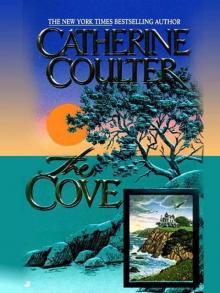 The Cove
The Cove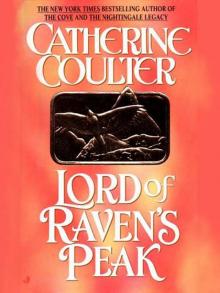 Lord of Raven's Peak
Lord of Raven's Peak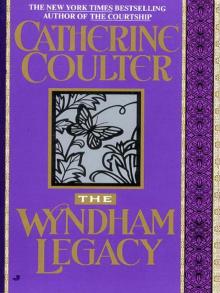 The Wyndham Legacy
The Wyndham Legacy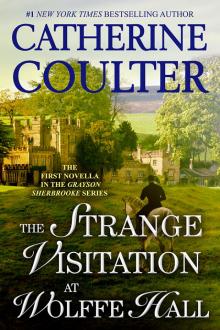 The Strange Visitation at Wolffe Hall
The Strange Visitation at Wolffe Hall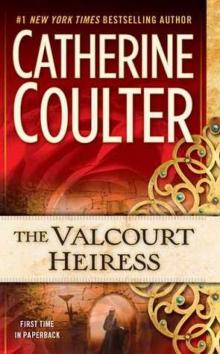 The Valcourt Heiress
The Valcourt Heiress Bombshell
Bombshell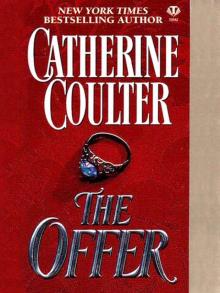 The Offer
The Offer The Edge
The Edge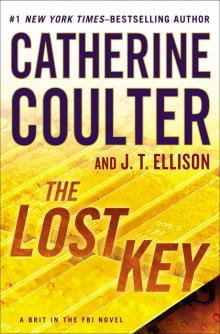 The Lost Key
The Lost Key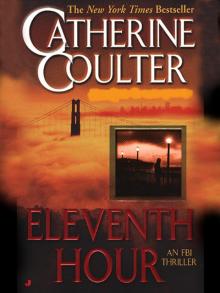 Eleventh Hour
Eleventh Hour Blindside
Blindside Devil's Daughter
Devil's Daughter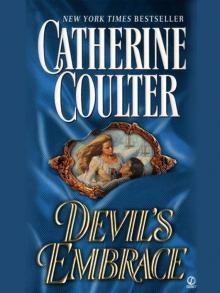 Devil's Embrace
Devil's Embrace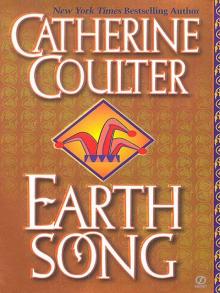 Earth Song
Earth Song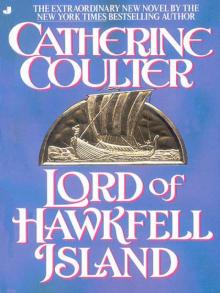 Lord of Hawkfell Island
Lord of Hawkfell Island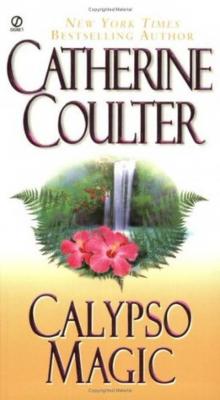 Calypso Magic
Calypso Magic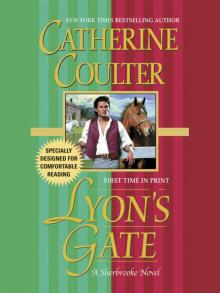 Lyon's Gate
Lyon's Gate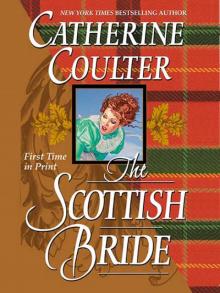 The Scottish Bride
The Scottish Bride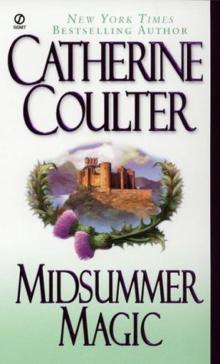 Midsummer Magic
Midsummer Magic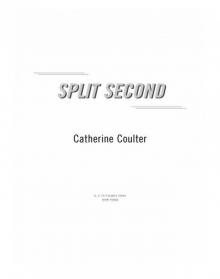 Split Second
Split Second Enigma
Enigma Blowout
Blowout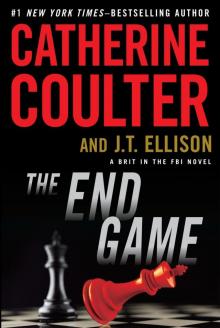 The End Game
The End Game Double Take
Double Take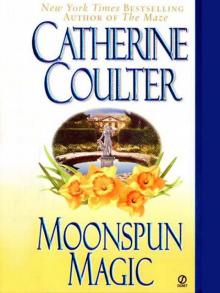 Moonspun Magic
Moonspun Magic The Courtship
The Courtship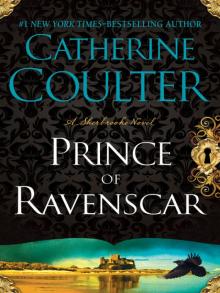 Prince of Ravenscar
Prince of Ravenscar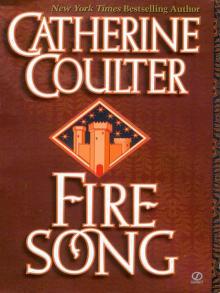 Fire Song
Fire Song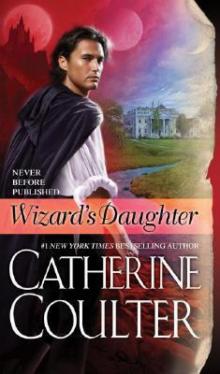 Wizard's Daughter
Wizard's Daughter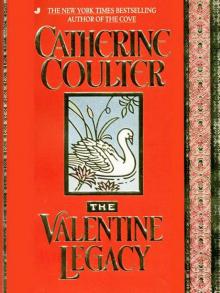 The Valentine Legacy
The Valentine Legacy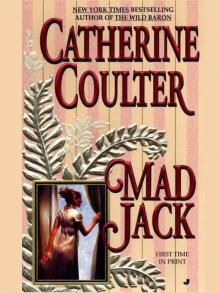 Mad Jack
Mad Jack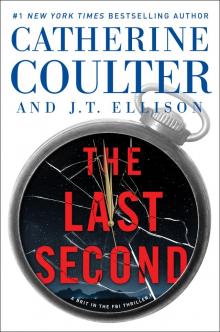 The Last Second
The Last Second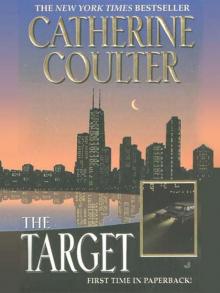 The Target
The Target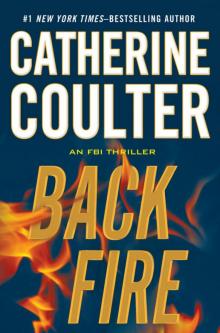 Backfire
Backfire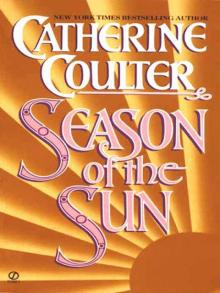 Season of the Sun
Season of the Sun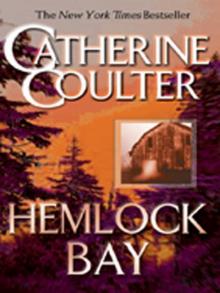 Hemlock Bay
Hemlock Bay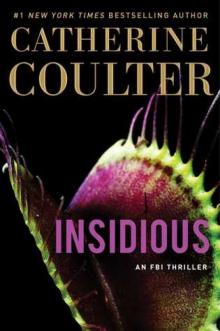 Insidious
Insidious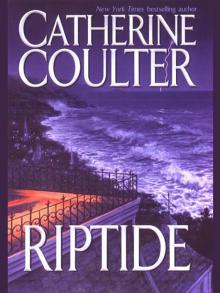 Riptide
Riptide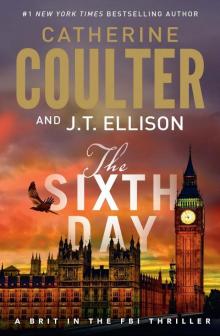 The Sixth Day
The Sixth Day Secret Song
Secret Song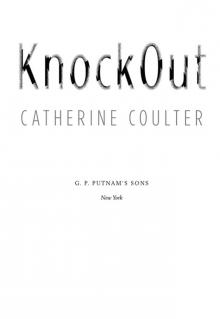 KnockOut
KnockOut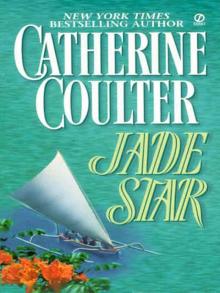 Jade Star
Jade Star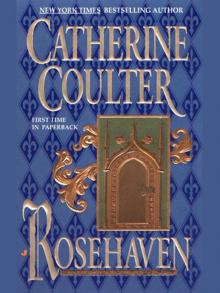 Rosehaven
Rosehaven The Hellion Bride
The Hellion Bride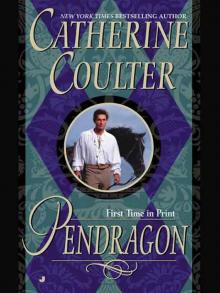 Pendragon
Pendragon Vortex
Vortex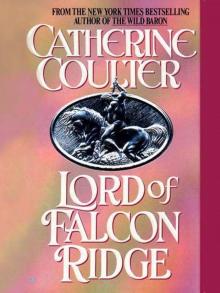 Lord of Falcon Ridge
Lord of Falcon Ridge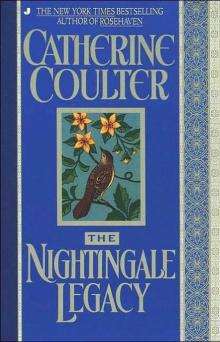 The Nightingale Legacy
The Nightingale Legacy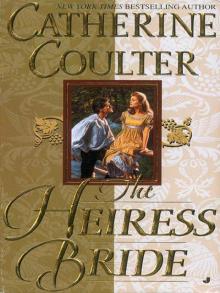 The Heiress Bride
The Heiress Bride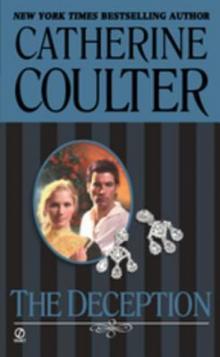 The Deception
The Deception The Maze
The Maze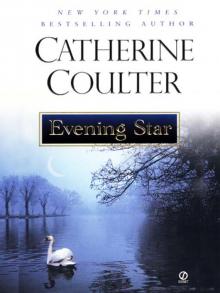 Evening Star
Evening Star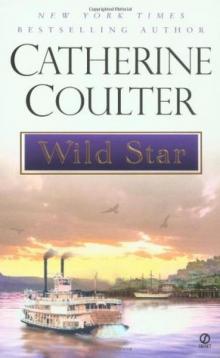 Wild Star
Wild Star The Final Cut
The Final Cut Paradox
Paradox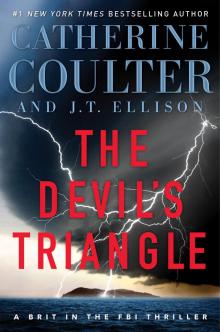 The Devil's Triangle
The Devil's Triangle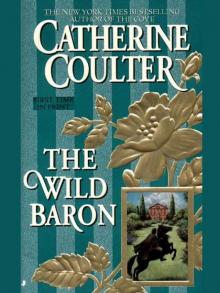 The Wild Baron
The Wild Baron Point Blank
Point Blank Labyrinth
Labyrinth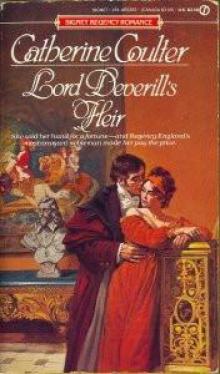 Lord Deverill's Heir
Lord Deverill's Heir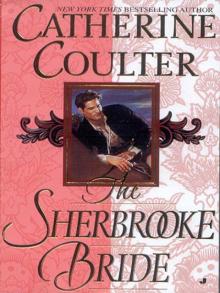 The Sherbrooke Bride
The Sherbrooke Bride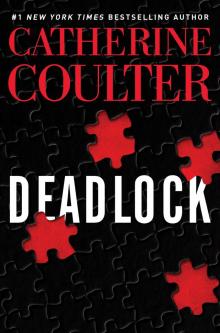 Deadlock
Deadlock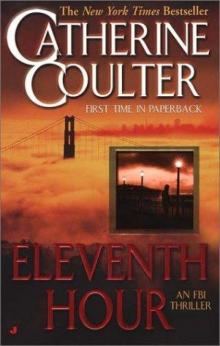 Eleventh Hour f-7
Eleventh Hour f-7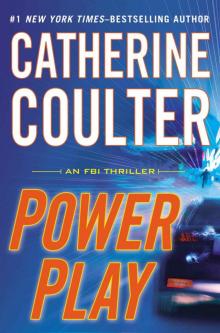 Power Play (An FBI Thriller)
Power Play (An FBI Thriller)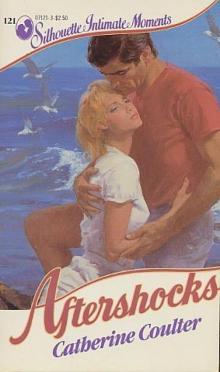 Aftershocks
Aftershocks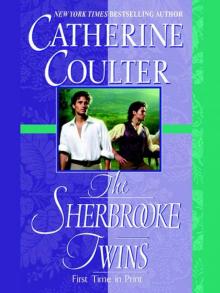 Sherbrooke Twins tb-8
Sherbrooke Twins tb-8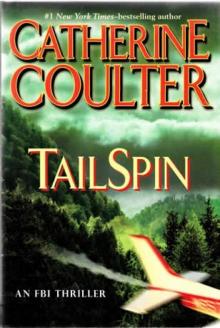 Tail Spin ft-12
Tail Spin ft-12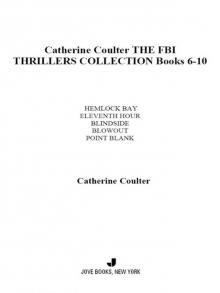 The FBI Thrillers Collection
The FBI Thrillers Collection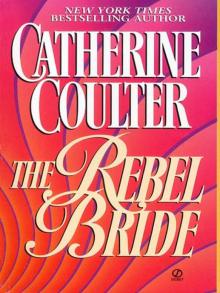 The Rebel Bride
The Rebel Bride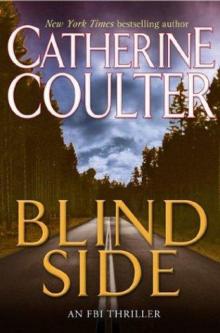 Blindside f-8
Blindside f-8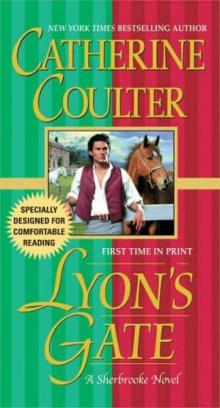 Lyons Gate tb-9
Lyons Gate tb-9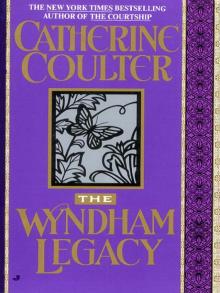 Wyndham Legacy
Wyndham Legacy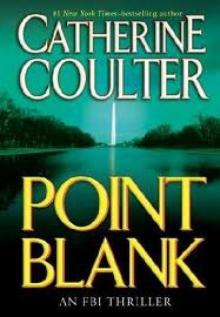 Point Blank f-10
Point Blank f-10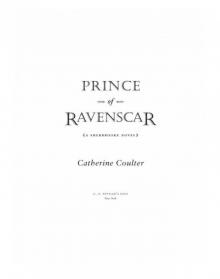 The Prince of Ravenscar
The Prince of Ravenscar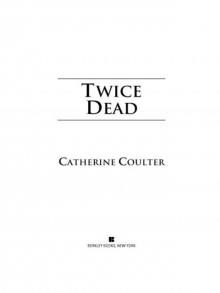 Twice Dead
Twice Dead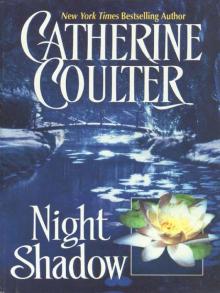 Night Shadow
Night Shadow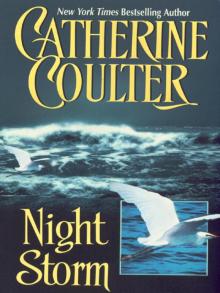 Night Storm
Night Storm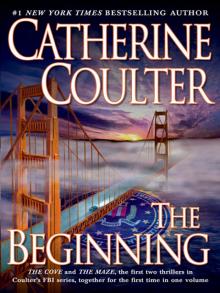 The Beginning
The Beginning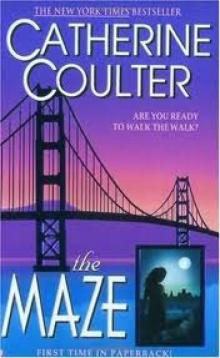 The Maze ft-2
The Maze ft-2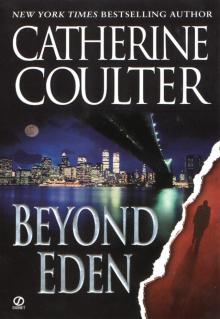 Beyond Eden
Beyond Eden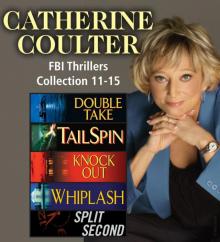 The FBI Thrillers Collection: Vol 11-15
The FBI Thrillers Collection: Vol 11-15 FALSE PRETENSES
FALSE PRETENSES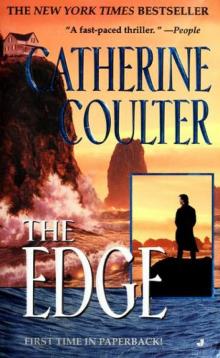 The Edge f-4
The Edge f-4 Bombshell (AN FBI THRILLER)
Bombshell (AN FBI THRILLER)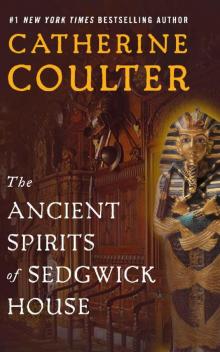 The Ancient Spirits of Sedgwick House (Grayson Sherbrooke's Otherworldly Adventures Book 3)
The Ancient Spirits of Sedgwick House (Grayson Sherbrooke's Otherworldly Adventures Book 3)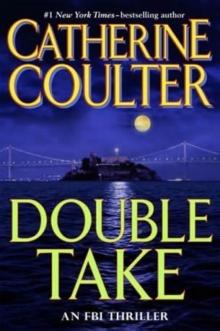 Double Take ft-11
Double Take ft-11 The Heir
The Heir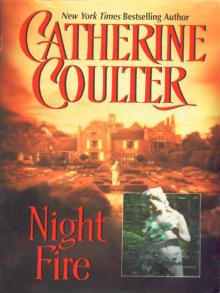 Night Fire
Night Fire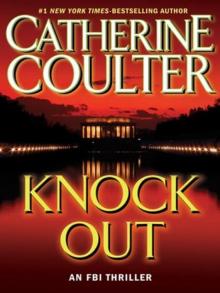 KnockOut ft-13
KnockOut ft-13 Hemlock Bay f-6
Hemlock Bay f-6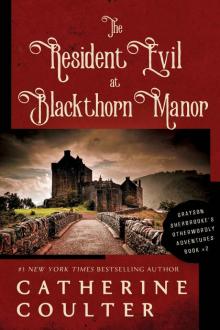 The Resident Evil at Blackthorn Manor (Kindle Single) (Grayson Sherbrooke's Otherworldly Adventures Book 2)
The Resident Evil at Blackthorn Manor (Kindle Single) (Grayson Sherbrooke's Otherworldly Adventures Book 2)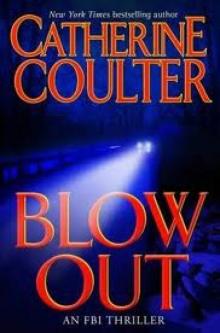 Blowout ft-9
Blowout ft-9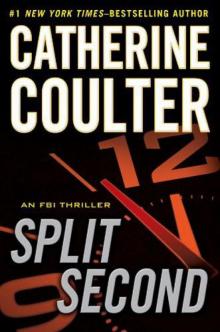 Split Second f-15
Split Second f-15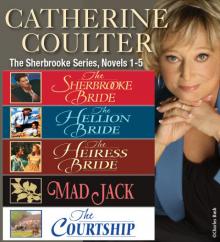 The Sherbrooke Series Novels 1-5
The Sherbrooke Series Novels 1-5 Impulse
Impulse Paradox (An FBI Thriller Book 22)
Paradox (An FBI Thriller Book 22)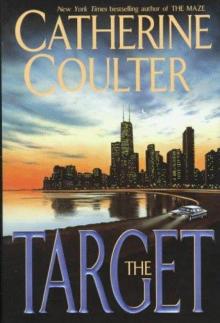 The Target f-3
The Target f-3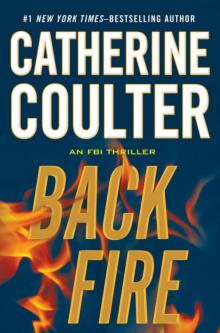 Backfire fst-16
Backfire fst-16 Born To Be Wild
Born To Be Wild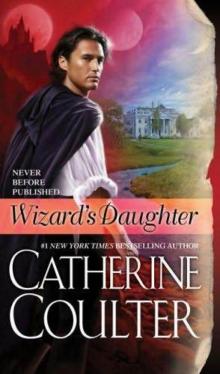 Wizards Daughter tb-10
Wizards Daughter tb-10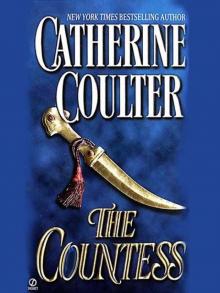 The Countess
The Countess